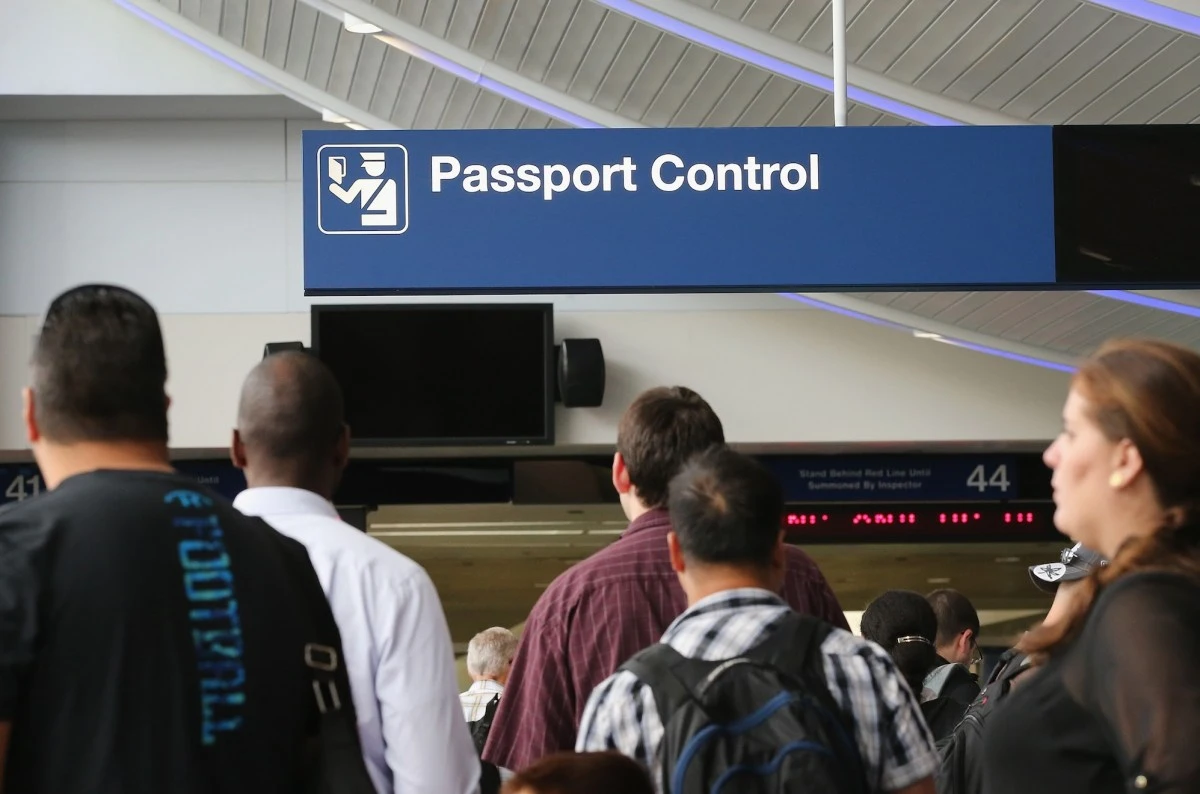A federal district court in New York has ruled that U.S. border agents must obtain a warrant before searching the electronic devices of Americans and international travelers crossing the U.S. border.
The ruling on July 24 is the latest court opinion to upend the U.S. government’s long-standing legal argument, which asserts that federal border agents should be allowed to access the devices of travelers at ports of entry, like airports, seaports and land borders, without a court-approved warrant.
“The ruling makes clear that border agents need a warrant before they can access what the Supreme Court has called ‘a window into a person’s life,’” Scott Wilkens, senior counsel at the Knight First Amendment Institute, one of the groups that filed in the case, said in a press release Friday.
The district court’s ruling takes effect across the U.S. Eastern District of New York, which includes New York City-area airports like John F. Kennedy International Airport, one of the largest transportation hubs in the United States.
Critics have for years argued that these searches are unconstitutional and violate the Fourth Amendment, which protects against unwarranted searches and seizures of a person’s electronic devices.
In this court ruling, the judge relied in part on an amicus brief filed on the defendant’s behalf that argued the unwarranted border searches also violate the First Amendment on grounds of presenting an “unduly high” risk of a chilling effect on press activities and journalists crossing the border.
With several federal courts ruling on border searches in recent years, the issue of their legality is likely to end up before the Supreme Court, unless lawmakers act sooner.
So how long till the Supremes rule that CBP is not only allowed to search your phone but also to perform colonoscopies at checkpoints 100 miles inland and sell the resulting videos to extremely wealthy perverts?
Depends on if Kamala and/or Congress can fix SCOTUS by next year. But I would expect this to show up on their docket in 2025, so hopefully that happens sooner than later.
Fix=CoEqual branch un-coequaling another branch…
Lol DAE hate constitutionalists and love marx? Teehee.
This was such an absolute bullshit abuse of power and violation of rights. I’m also honestly surprised this wasn’t lobbied against by corporations who don’t want their corporate devices that contain proprietary information to be accessed by any Joe Dipshit working at an airport.
If it’s a concern for a corp, they can just ship the devices through the mail if there’s less scrutiny through the mail system (there usually is, they aren’t going to check the contents of every drive or try to crack the pin on every phone), or they just store their data in the cloud and pay for a new device for use at the destination so it never crosses the border.
They won’t try to crack your pin at airports either, they just force you to enter it against your will, under threat of arrest.
If you’re a US citizen they’ll just seize it and send it in for forensics.
While they can make your life miserable, and revoke any entry programs you’re a member of, they can’t prevent a citizen from crossing the border. Only the stuff you carry.
They aren’t preventing you from entering, they are accepting your entry and taking you into border patrol custody for failure to comply.
I don’t actually know the proper terminology, but there’s nothing stopping them from arresting you for non compliance. They have broad power within 100 miles of a border crossing.
The real lesson here is Lemmy/Reddit is no substitution for a lawyer. ACLU spells it out but in the end there are a lot of circumstances that apply.
Ultimately, if you’re a US Citizen, and that’s not in question, they can only take your stuff, they can’t arrest you.
Ars interviewed an attorney about this…
So, take it however you will.
For what it’s worth I’ve done a bit over 1.6 million air miles on Delta for work and have the silly keychain tag to prove it, and the only time customs has ever given me shit was at YYZ, the Canadians are no joke if you come in on a US passport, and you’d better have proof you’re not coming there for 3 days to do a job that a Canadian could do. In my case I was training some Canadians but People Ops were kind enough not to get me the paperwork I needed.
Most big companies have training for their international travelers as well, the ones I’ve worked with always say to surrender passwords and equipment, and contact SecOps to let them know as soon as you safely can, some even have nice systems that print out invitation letters and proof of ownership for equipment including serial numbers.
Edit: CBP is NOT a court order to provide a password. If a court orders it and you refuse, well that’s contempt, and the list of people who’ve sat in prison refusing is no joke.
We’re talking about cell phones here, not hard drives and laptops. I’m not going to ship my cell phone every time I fly out of the country, if only because it has my plane tickets and travel information that I’ll need when I land. And emails and texts might be “stored” in the cloud, but old emails are also stored on the cell phone and can be read even with wifi/cell data turned off.
And it only took 2 decades to get here…
deleted by creator
then you’re randomly selected once again to spend an additional 4h in a room until they check your story, because using a burner is suspicious af
deleted by creator
in that case it makes no difference if it’s a burner or not
deleted by creator
what do they actually “search” for on a random person’s phone anyway? one sus picture out of 1000+? or that one incriminating text out of even more texts? emails?
It isn’t random. They search phones belonging to people they suspect of crimes, but don’t have enough evidence to get a warrant for, people they think are connected to criminals even if they are not criminals themselves, and people they want to harass such as activists.
They also search people who book last minute tickets to major cities because they suspect drug trafficking
With something like iCloud backup, It would be as simple as wiping your phone before going through border patrol, and then restoring it once you are through. Seems like a violation of privacy that’s easy to get around for those that want to, and a waste of resources searching the phones of those people who don’t care enough to wipe their phone
If you have reason to think you’ll get searched, methods like this can be very effective. If you’re entering the USA and you’re not a citizen, there’s a chance having a freshly wiped phone will lead to you being denied entry.
Evidently quite a few people who have evidence of crimes on their phones don’t do that sort of thing; the person in the ruling this article about is accused of possessing child sexual abuse media on his phone. It probably isn’t a waste of resources with regard to finding evidence of crimes like that; it is a cheat code for searches that would ordinarily be unconstitutional, at least in judicial districts where the courts haven’t cracked down on it yet.
Yeah I guess if you aren’t a citizen and have a blank phone that could be a red flag, makes sense. The fact that it’s managed to find stuff to me still doesn’t make it ethical. Seems like the type of thing where the NSA will contract palantir to write software to rapidly copy the contents of your entire device and add it to a database about you, which as of now may not be used for nefarious means, but that only depends on who is in power.
The RICO case against the Stop Cop City protestors in Atlanta is using blank phones of protestors–who are all American citizens–as proof of criminal intent and conspiracy. It’s a catch-22; lack of evidence is evidence of guilt.
And it seems like if you’re running drugs or whatever and worried about this type of search, you just use a burner phone anyway. Or if you’re only going one way, mail your personal phone.
The FBI on their way to search my phone and steal all my memes
god damn right
Yet a cop in the US can legally forcibly use your finger to unlock your phone to go through it, makes no sense.







